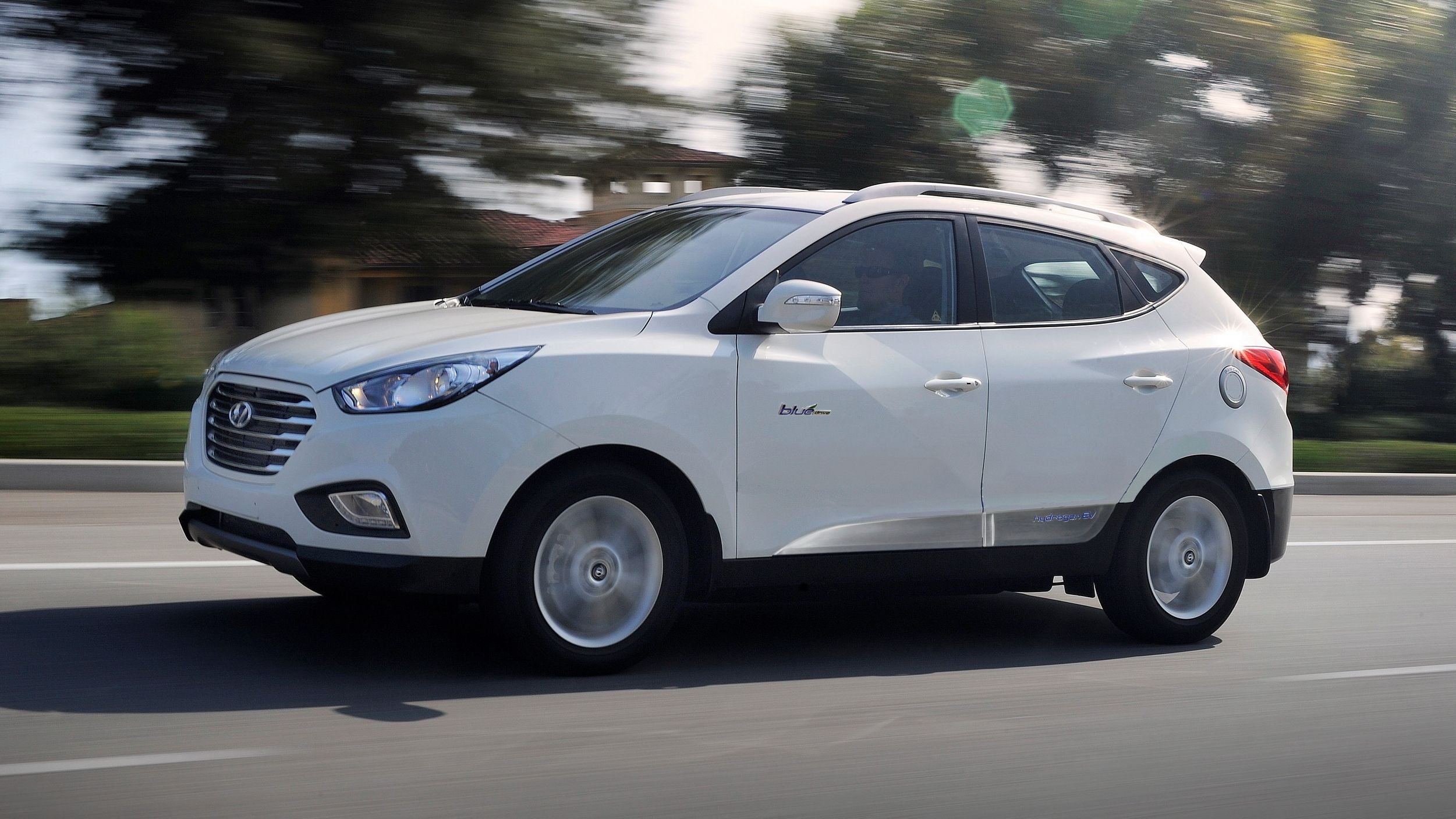Hyundai->ke201 has led the fight to bring hydrogen->ke4485 fuel cell->ke4483 vehicles to the public for some time now, having achieved its goal in 2015 on a small scale with the ix35 crossover. Now the automaker is planning greater things with its sister company, Kia.->ke41
Sae-Hoon Kim, Hyundai-Kia’s head of hydrogen fuel cell research, said in an interview with AutoCar, “We will launch a dedicated vehicle, although it is not clear what vehicle type it will be based around.” Kim’s comments come after Toyota’->ke88s release of the Mirai->ke4985 fuel cell vehicle that rides on its own unique platform and boasts its own styling.
“Developing a bespoke car offers clear advantages,” Kim continues. “For instance, the larger the radiators on a fuel cell car the better, and you can see on the Mirai that they have developed a cooling solution that helps with that scenario.” It’s implied that creating a vehicle around the fuel cell powertrain is much simpler, rather than modifying an existing platform for fuel cell use.
Hyundai obviously hasn’t officially announced what type of vehicle its fuel cell vehicle will be, but sticking with a crossover platform is highly likely thanks to how well crossovers->ke288 and SUVs->ke145 selling.
Kim further divulged the automaker is aiming for a 500-mile range per fill-up with a top speed of 110 mph. Hyundai’s current fuel cell, the ix35, has a range of 375 miles with a 100-mph top end. Simply adding a larger hydrogen storage tank will extend the range, though more power or better aerodynamics will be needed for the increase in top speed.
Continue reading for the full story.
Why it matters
Fuel cell vehicles are very appealing for many reasons. First off, they are refueled in a similar way as gasoline vehicles are, though the fuel is under pressure and requires a special connection for transfer. Secondly, refueling takes far less time than recharging an electric vehicles battery, lending more freedom to travel further distances within a day. Thirdly, hydrogen is plentiful and is creatable for a sustainable fuel source. Fourthly, a fuel cell vehicle doesn’t create or emit any harmful byproducts like gasoline vehicles and don’t create the hazards of batteries ending up in land fields.
Hydrogen’s main downfall in current times is its availability at fueling stations. The infrastructure network simply isn’t in place. That can change, though, as gas stations begin adding hydrogen pumps or hydrogen-exclusive stations begin spreading.
Hyundai Tucson Fuel Cell
Read our full review on the Hyundai Tucson Fuel Cell here.

